The Teenage Brain
“Teenagers develop an accelerator before they learn to brake or steer,” says UC Berkeley Developmental Psychologist Ronald Dahl. Humans are unique in that they have the longest and most protected childhood of any primate. How we spend that childhood has been changing. No generation has been more protected nor done fewer “practical” things than this generation. Just a few generations ago, many kids started apprenticeships in late childhood. Now adulthood is often postponed until one’s late twenties as kids pursue college and then graduate school with few real responsibilities. The paper route as a first job is becoming a thing of the past. By age 14, Daniel Boone had already spent a year wandering the backwoods of Kentucky. Alexander the Great ruled Macedonia by age 16, and Jeanne D’Arc led French troops into battle at age 17. I was amazed when I was recently in Guatemala and saw small children younger than age 8 diligently using full sized machetes to clear brush and collect firewood. Meanwhile, even smaller children aged 5 or 6 were caring for their younger siblings while their parents worked. I am certainly not about to give a machete to my 8 year old!
Meanwhile my kids are in school or on the soccer field. And as they spend more time in school, research shows that their IQ’s are actually going up! And the level of soccer play by a typical 11 year old kid in an academy training program is ridiculous. Our kids are learning things they will need to be knowledge workers in the global economy – this is important in a technological world that is becoming increasingly stratified by education and where there are real consequences for not keeping up. But as our kids spend less time learning in a hands on fashion, they encounter fewer opportunities for real responsibilities.
Research shows that the growth of our kid’s prefrontal cortexes is actually being delayed. The prefrontal cortex guides control and decision making – it’s the “brake.” While it’s affected by genes it’s not genetically hardwired. In fact, it’s a muscle yearning to be used! Good decisions come from practice, practice and more practice and from learning from small mistakes. Our kids are learning a lot but they don’t get to practice much. Kids may understand the nature of heat or the chemical composition of salt but that doesn’t mean they can actually make an omelette! Back in the age of apprenticeships, we were carefully guided by adults. Our decision making was tested early in life and kids often learned real skills before they reached adolescence. When puberty hit they already had a foundation for good decision making.
Kids are now hitting puberty a full year earlier than previous generations. This may be caused by additives or hormones in our food, chemicals in our environment or a more sedentary lifestyle. In Puberty, the teenage brain changes. These changes associated with puberty don’t necessarily cause a teenager to underestimate risk; but they do cause one to overestimate rewards. And research show that if other teens are present, one’s reward centers will light up even more. So kids are getting their “accelerator” earlier and getting the experiences that build good judgment (their “brake and steering”) later. This may explain why normally great kids, who theoretically should understand consequences, may still sometimes go out and make some really dumb decisions. And this is what keeps us parents up at night.
So where does Adventure Treks fit in. We are hardly an apprenticeship, nor are we going to “supervise” your kid while we let him wander the backwoods of an entire territory solo like young Daniel Boone. We do however give our kids plenty of fun, hands on activities…and lots of age appropriate responsibility. We want them to help out with the day to day functions that keep a small expedition moving forward. We will give them responsibilities that have natural consequences. For example, if your tent is set up poorly, you will sleep wet! If you leave your shoes outside at night, they will be damp the next day. If you wear a cotton shirt in the rain, you will get cold. If you don’t stir the eggs you are cooking, you will burn them and your friends who were also planning to eat the eggs, won’t be happy – especially when the nearest store is a three day backpack away! We also offer mentors who teach, guide and offer life lessons. We reinforce good decision making by including the students in our safety reasoning. Risk = (Probability X Consequences.) We want our students to continue to make good and safe decisions long after they leave us. Now we make no promises that we can align your child’s “brake and accelerator.” Adolescence is a turbulent time for all involved, but we want to help. This generation is generally a great bunch of kids and we find that a little hands on experience outdoors always helps!
We are getting excited to see your teenager soon! Our trip leader training near Mt Hood, Oregon begins today. Our entire staff team orientation begins near Portland on June 12. We’ll update you from Instructor training next week.
Best, Dock
